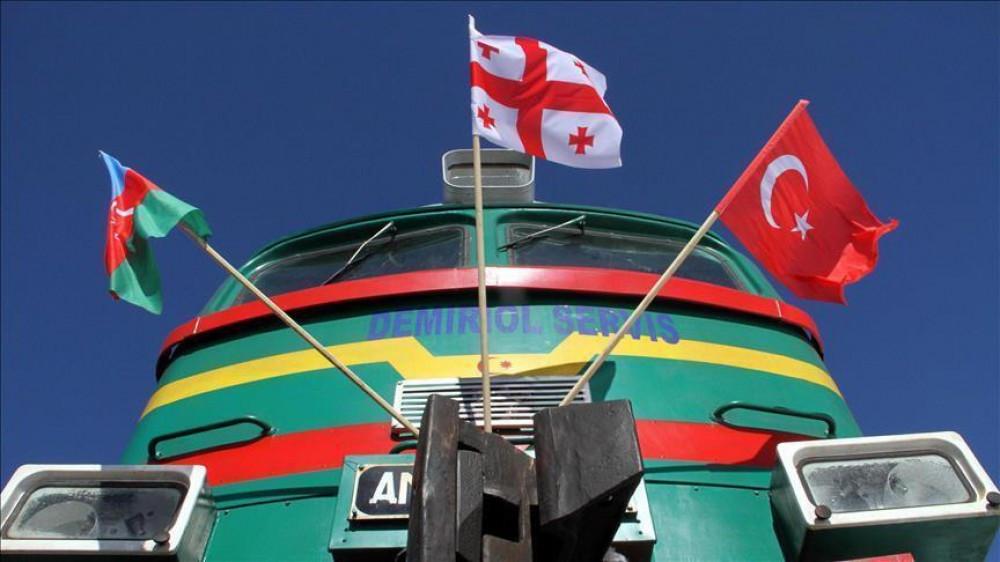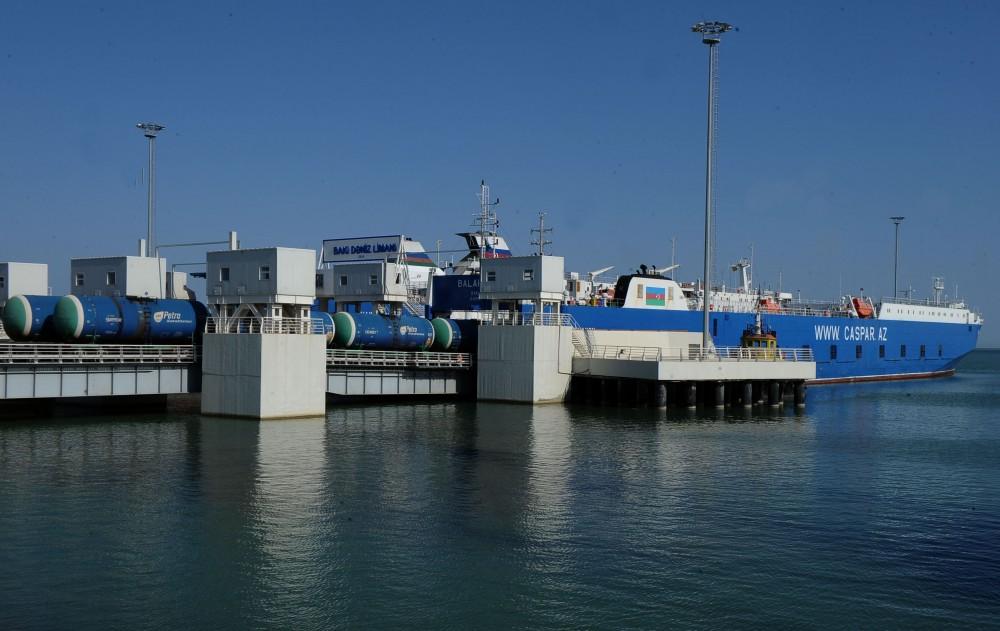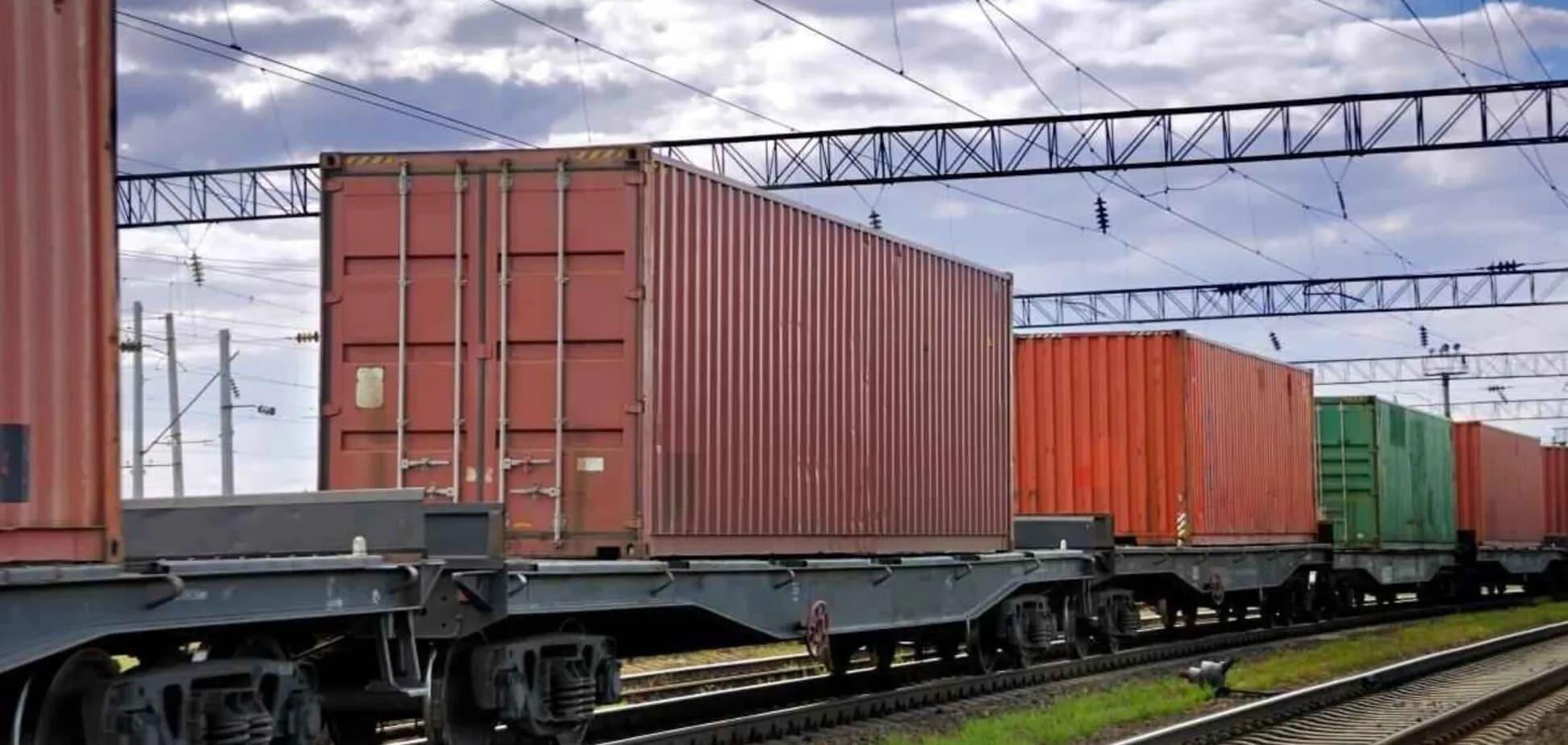Azerbaijan, Türkiye, Georgia to unify customs procedures to speed up cargo transportation via BTK Anaysis by Caliber.Az
The demand for alternative transport routes, including the transshipment of goods along the Middle Corridor connecting Europe and Asia and passing through Azerbaijan, has increased by many times amid the energy and food crises exacerbated by the war in Ukraine. Geopolitical changes force the regional countries to intensify transport cooperation, supporting Baku's efforts to create a regional logistics hub. For this purpose, an agreement on the exchange of information and simplification of transit customs procedures along the Baku-Tbilisi-Kars (BTK) railway corridor has been recently signed during a meeting of the trilateral committee on customs issues of Azerbaijan, Türkiye, and Georgia in Baku.

The geopolitical crisis, caused by the six-month war in Ukraine and the anti-Russian sanctions imposed in this regard, has fundamentally changed the transit and logistics situation in Eurasia.
As far as the competitiveness of the Northern Corridor weakens, the number of applications from freight forwarders and logistics companies of Europe, Türkiye, Central Asian countries, and China, which came up with initiatives to expand the potential of the Silk Road by increasing freight traffic along a number of routes of the Middle Corridor, greatly increased.
Almost all these transit routes pass through Azerbaijan, and of course, Azerbaijan has become a key beneficiary of the recently increased cargo flow. The technical base contributing to the multiple increases in freight traffic through Türkiye, Azerbaijan, the Central Asian countries and China was the Baku-Tbilisi-Kars (BTK) railway corridor, which was put into operation in October 2017.
Nur-Sultan, Baku, Tbilisi, and Ankara agreed on the creation of the Trans-Caspian International Transport Route (TITR) in 2017, mainly designed for the transportation of non-oil, mainly multimodal container cargo.
According to the estimates of the EU transport organisations, this route could become the basis of the logistics of the entire Middle Corridor in a short period of time.
Moreover, China began to actively develop this potential as part of its One Belt, One Road initiative, organising the movement of block trains for transshipment of container cargo to Türkiye and further to the Middle East and Europe.
As there is no alternative to the Middle Corridor today, a high dynamic of growth in cargo traffic via this corridor is observed. Baku International Sea Trade Port increased the transshipment volume of railcars (18,376 units) by 25.8 per cent in January-June 2022 compared to the first half of 2021.
At the same time, about 8,700 TEU containers were transported through Azerbaijan during four months of 2022, which is 30 per cent more than in the first three months of last year. The main volume of railway cargo and containers from China and the Central Asian countries, which are handled in the Port of Alat, is then sent from Georgia to Türkiye via the BTK and further to Europe.
At the same time, goods were transported along the BTK in the reverse direction - from Türkiye to Kazakhstan, Turkmenistan, Uzbekistan, and China.
The intensity of cargo transportation by sea and railway has been increasing very dynamically since late February 2022, slowing down only by the end of the first ten days of July due to the extreme congestion of the port and railway infrastructure, as a result of which over 800, and then almost 1,500 railcars, which were moving to Kazakhstan and Turkmenistan, accumulated in the Port of Alat.
The situation was exacerbated by a sharp increase in the transshipment of trucks, and due to the big cargo flow, there were more heavy-duty trucks on ferries and RO-RO ships as opposed to railcars.
As a result, a temporary convention ban on ferry transportation of loaded railcars for the Alat-Kuryk, Alat-Aktau, and Alat-Turkmenbashi ferry crossings has been introduced since July 10. These restrictions have been lifted since August 1, and the Trans-Caspian corridor is currently operating as usual.

As a result of the recent force majeure, more efforts should be made to expand the capacity of the TITR infrastructure, especially given the growth in the transit of Chinese and Turkish cargo.
This work started in late 2021. A corridor passport was prepared. Bottlenecks were determined. The measures are being taken to eliminate them and attract additional investments here.
The concept of a joint venture has been developed through the active cooperation of Baku, Ankara, and Nur-Sultan and is currently being agreed upon. The joint venture will manage the flow of goods, as well as expand the possibilities for transporting additional cargo via TITR.
The rapid beginning of the joint venture’s activity is an extremely important issue as the project participants will have to agree on a number of urgent issues taking into account the multiple increases in cargo transportation.
It is necessary to approve recent tariff changes for transit cargo, discuss aspects of further simplification of cross-border and customs procedures and the use of unified IT solutions, consolidation of transit cargo on the route.
Moreover, it is also necessary to optimise the issue of buying and renting railcar loading platforms and consider new schedules for the movement of ferries, and feeder ships between the ports of the eastern and western coasts of the Caspian Sea.
An increase in freight traffic along the BTK railway corridor by increasing the throughput on narrow sections of this railway is also an important issue.
The work is expected to be accelerated in Georgia to complete the construction of the Marabda - the Turkish border section soon. The construction of logistics terminals in Georgia’s Akhalkalaki town and Türkiye’s Kars city is under completion, and these nodal transport hubs will further increase the BTK’s cargo potential.
All these tasks will be solved in stages. Azerbaijan, Türkiye, and Georgia have set the goal of establishing a stable electronic exchange of primary data on goods that are transported through the BTK and thereby simplifying transit customs procedures on this cross-border corridor.
In this regard, a meeting of the tripartite committee on customs issues among the governments of the three countries was held in Baku and a corresponding agreement was signed on August 18, 2022.
Participant in the Baku meeting, Deputy Minister of Trade, and Head of the Turkish Customs Department Riza Tuna Turagay has said that the mechanisms for simplified customs procedures are planned to be introduced among the countries, and customs risk analysis will be exchanged by ensuring a preliminary exchange of information.
“After the risk analysis is available to all three countries, there will be no need for duplication of control measures. At present, the customs departments of Azerbaijan, Georgia, and Türkiye alternately take the same control measures, and the transportation of goods takes less time,” the deputy minister said.
Turagay noted that the implementation of a pilot project to optimise transit cargo transportation along the BTK will begin within three months.
Some shortcomings with the infrastructure of the corridor will also have to be eliminated, after which both freight traffic and the intensity of the work of the BTK railway line will increase.
Today, the cost of rail transportation is relatively low and competitive. Nevertheless, 80 per cent of cargo between Türkiye and Azerbaijan is transported by car. The reason is that the transportation of goods along the BTK from Baku to Kars exceeds 70 hours, and today efforts should be made to increase the speed of cargo transshipment by railway.

“Thus, the implementation of the Baku Agreement will create conditions for the timely and efficient transportation of goods via the Baku-Tbilisi-Kars railway through all three countries while the mutual unification of modern methods of customs control will greatly save time by speeding up the transportation of goods,” Acting Chairman of the State Customs Committee of the Republic of Azerbaijan Shahin Baghirov said.
Of course, these measures will facilitate and speed up the work of the port and railway services of Azerbaijan, Türkiye, and Georgia.








